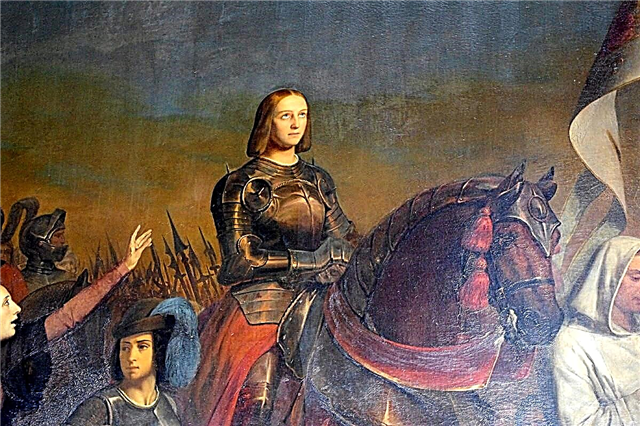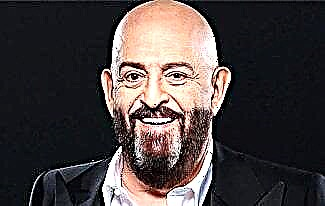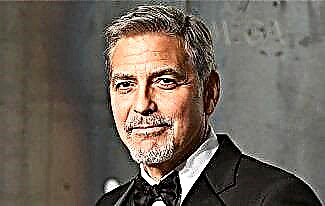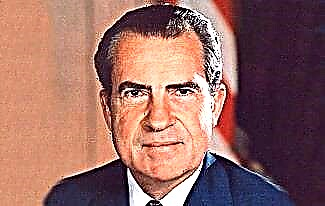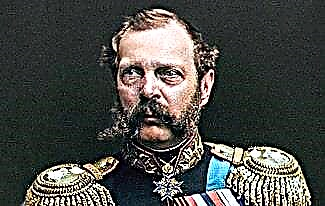Alexander Mikhailovich Vasilevsky (1895-1977) - Soviet military leader, Marshal of the Soviet Union, Chief of the General Staff, member of the Headquarters of the Supreme High Command, Commander-in-Chief of the High Command of Soviet troops in the Far East, Minister of the Armed Forces of the USSR and Minister of War of the USSR.
One of the greatest commanders of the Second World War (1939-1945). Twice Hero of the Soviet Union and holder of 2 Victory Orders.

There are many interesting facts in the biography of Vasilevsky, which we will discuss in this article.
So, before you is a short biography of Alexander Vasilevsky.
Biography of Vasilevsky
Alexander Vasilevsky was born on September 18 (30), 1895 in the village of Novaya Golchikha (Kostroma province). He grew up in the family of the head of the church choir and priest Mikhail Alexandrovich and his wife Nadezhda Ivanovna, who were parishioners of the Orthodox Church.
Alexander was the fourth of 8 children of his parents. When he was about 2 years old, he and his family moved to the village of Novopokrovskoye, where his father began to serve as a priest in the Ascension Church.
Later, the future commander began to attend a parish school. Having received his primary education, he entered a theological school, and then into a seminary.
At that moment in his biography, Vasilevsky planned to become an agrarian, but due to the outbreak of the First World War (1914-1918), his plans were not destined to come true. The guy entered the Alekseevsk military school, where he underwent an accelerated course of study. After that, he went to the front with the rank of ensign.
World War I and Civil War
In the spring of 1916, Alexander was entrusted to command the company, which eventually became one of the best in the regiment. In May of the same year, he took part in the legendary Brusilov Breakthrough.
An interesting fact is that the Brusilov Breakthrough is the largest battle of the First World War in terms of total losses. Since many officers died in the battles, Vasilevsky was instructed to command the battalion, having been promoted to the rank of staff captain.

During the war years, Alexander showed himself as a brave soldier, who, thanks to his strong character and fearlessness, raised the morale of his subordinates. The news of the October Revolution found the commander during his service in Romania, as a result of which he decided to resign.
Returning home, Vasilevsky worked as an instructor for military training of citizens for some time, and then taught in elementary schools. In the spring of 1919 he was drafted into service, which he served as an assistant platoon leader.
In the middle of the same year, Alexander was appointed battalion commander, and then commander of an infantry division, which was supposed to oppose the troops of General Anton Denikin. However, he and his soldiers did not manage to engage in a battle with Denikin's forces, since the Southern Front stopped at Orel and Kromy.
Later Vasilevsky, as part of the 15th Army, fought against Poland. After the end of the military conflict, he led three regiments of an infantry division and headed a divisional school for junior commanders.
In the 30s, Alexander Mikhailovich decided to join the party. During this period of his biography, he collaborated with the publication "Military Bulletin". The man took part in the creation of the "Instructions for the conduct of deep combined arms combat" and other works on military affairs.
When Vasilevsky turned 41, he was awarded the rank of colonel. In 1937, he graduated with honors from the military academy, after which he was appointed head of operational training for command personnel. In the summer of 1938 he was promoted to the rank of brigade commander.
In 1939, Alexander Vasilevsky participated in the development of the initial version of the plan for the war with Finland, which was later rejected by Stalin. The following year, he was part of a commission organized to conclude a peace treaty with Finland.
A few months later, Vasilevsky was promoted to the rank of division commander. In November 1940, as part of the Soviet delegation, led by Vyacheslav Molotov, he traveled to Germany to negotiate with the German leadership.
The Great Patriotic War
By the beginning of the war, Vasilevsky was already a major general, being the deputy chief of the General Staff. He played an important role in organizing the defense of Moscow and the ensuing counteroffensive.
At that difficult time, when German troops won one after another victories in battles, Alexander Mikhailovich headed the 1st echelon of the General Staff.
He was faced with the task of comprehensively mastering the situation at the front and regularly informing the leadership of the USSR about the state of affairs on the front line.

Vasilevsky managed to brilliantly cope with the responsibilities assigned to him, receiving praise from Stalin himself. As a result, he was awarded the rank of Colonel General.
He visited different front lines, observing the situation and developing plans for defense and offensive against the enemy.
In the summer of 1942, Alexander Vasilevsky was entrusted to head the General Staff. By order of the country's top leadership, the general studied the state of affairs at Stalingrad. He planned and prepared a counter-offensive against the Germans, which was approved by the Headquarters.
After a successful counteroffensive, the man continued to engage in the destruction of German units during the resulting Stalingrad cauldron. Then he was instructed to conduct an offensive operation in the Upper Don region.
In February 1943 Vasilevsky was awarded the honorary title of Marshal of the Soviet Union. In the following months, he commanded the Voronezh and Steppe fronts during the Battle of Kursk, and also participated in the liberation of Donbass and Crimea.
An interesting fact is that when the general was examining the de-occupied Sevastopol, the car in which he was traveling was blown up by a mine. Fortunately, he received only a slight head injury, apart from the cuts from the broken windshield.
After being discharged from the hospital, Vasilevsky led the fronts during the liberation of the Baltic states. For these and other successfully completed operations, he was awarded the title of Hero of the Soviet Union and the Gold Star medal.
Later, by order of Stalin, the general led the 3rd Belorussian Front, joining the Headquarters of the Supreme High Command. Soon, Alexander Vasilevsky led the assault on Konigsberg, which he managed to carry out at the highest level.
About a couple of weeks before the end of the war, Vasilevsky was awarded the 2nd Order of Victory. Then he played a key role in the war with Japan. He developed a plan for the Manchurian offensive operation, after which he led the Soviet army in the Far East.

As a result, it took Soviet and Mongolian troops less than 4 weeks to defeat the millionth Kwantung Army of Japan. For the brilliantly performed operations Vasilevsky was awarded the second "Gold Star".
In the post-war years of biography, Alexander Vasilevsky continued to climb the career ladder, rising to the post of Minister of War of the USSR. However, after Stalin's death in 1953, his military career changed dramatically.
In 1956, the commander-in-chief took the post of deputy minister of defense of the USSR for military science. However, the very next year he was dismissed due to poor health.
After that Vasilevsky was the 1st chairman of the Soviet Committee of War Veterans. According to him, the mass purges of 1937 contributed to the beginning of the Great Patriotic War (1941-1945). Hitler's decision to attack the USSR was largely due to the fact that in 1937 the country lost many military personnel, which the Fuhrer knew very well.
Personal life
The first wife of Alexander was Serafima Nikolaevna. In this marriage, the couple had a son, Yuri, who in the future became a lieutenant general of aviation. An interesting fact is that his wife was the daughter of Georgy Zhukov - Era Georgievna.

Vasilevsky remarried a girl named Ekaterina Vasilievna. The boy Igor was born in this family. Later Igor will become an honored architect of Russia.
Death
Alexander Vasilevsky died on December 5, 1977 at the age of 82. Over the years of his valiant service, he received many orders and medals in his homeland, and also received about 30 foreign awards.
Photos of Vasilevsky








